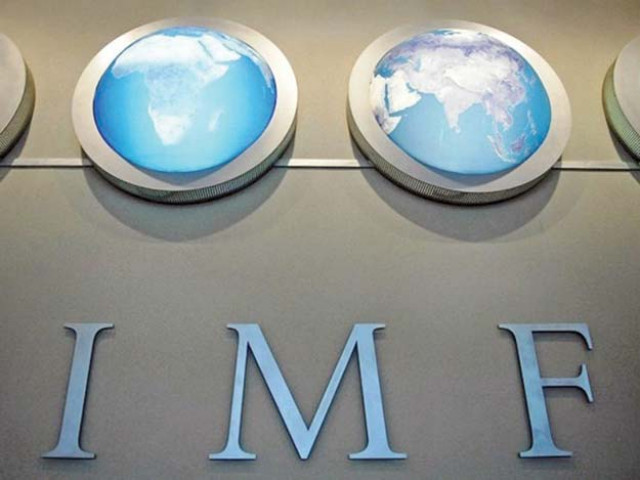New mission chief: IMF unlikely to toughen stance
Harald Finger impressed by economic headway made by Pakistan.

While the IMF endorses the country’s economic performance, independent economists argue that real reforms have not yet been implemented. STOCK IMAGE
The International Monetary Fund’s (IMF) stance is expected to remain unchanged in dealings with Pakistan after the appointment of the new mission chief, Harald Finger.
The newly appointed Washington-based mission chief for Pakistan is currently on a visit to Islamabad along with IMF Director for Central Asia and Middle East Masood Ahmed.
Finger has so far met independent economists and key government officials including Finance Minister Ishaq Dar and appears to be supportive of the government’s actions.

Finger has succeeded Jeffery Franks, who has been promoted and made IMF director to Europe desk.
The IMF has also appointed new resident representative for Pakistan, Tokhir Mirzoev, replacing Dr Mansoor Dilami.
According to a Lahore-based economist, who attended one of the meetings, there will be no change in IMF’s policies towards Pakistan unless political priorities of world powers change. A statement issued by the Ministry of Finance seemed to confirm the assessment.
“I am impressed by the economic headway Pakistan has made in past months and hope that things will further improve in the next three years,” said Finger, according to the statement issued after his meeting with Dar.
While the IMF endorses the country’s economic performance, independent economists argue that real reforms have not yet been implemented.
The government has been delaying the implementation of tough energy and tax reforms it promised while signing a three-year $6.6-billion Extended Fund Facility in September 2013.
The IMF has so far given 10 concessions in the first five reviews, keeping the programme alive. Besides, the lender of last resort also extended the deadlines set to achieve results in the areas of privatisation, energy and taxation and giving autonomy to the State Bank of Pakistan.
The new mission chief is visiting Pakistan weeks before the IMF executive board meets to give approval to the seventh loan tranche of $522 million by the end of this month following a successful end of the sixth review of the bailout package.
In an informal meeting with the economists, the lack of government’s appetite for reforms came up for discussion. The economists were of the view that windfall gains due to the plunge in global oil prices have provided a temporary cushion to the government, pushing it away from the path of reforms.
They urged the mission chief to be strict on reforms, as in the present scenario the chances of achieving sustainable economic growth were not very bright. An economist asked the IMF to ensure a competitive energy market in Pakistan with the help of reforms.
According to another economist, the mission chief did not appear interested in bringing a change in economic policies which were more focused on meeting budgetary targets by hook or by crook instead of overhauling the tax system.
He said Finger seemed to be defending the emergency tax measures including the increase in general sales tax on high-speed diesel to 37% - the highest level in the country’s history. Praising Pakistan’s economic performance, IMF Director Masood Ahmed emphasised the importance of broadening the tax base, improving the investment regime and enhancing competitiveness of the economy, according to the finance ministry.
Huge government borrowings from commercial banks to finance the budget deficit also came under discussion during the informal meetings. The economists urged the IMF to look into the tricky financing where banks were funding the federal government by borrowing from the SBP.
This has not only increased the cost of borrowing for the government but also killed the purpose of IMF’s condition to reduce borrowing from the SBP.
The economists also urged the IMF to promote indigenous research and think tanks, which could become a source of independent policy advice to both the government and the IMF.
Published in The Express Tribune, March 10th, 2015.
Like Business on Facebook, follow @TribuneBiz on Twitter to stay informed and join in the conversation.



















COMMENTS
Comments are moderated and generally will be posted if they are on-topic and not abusive.
For more information, please see our Comments FAQ